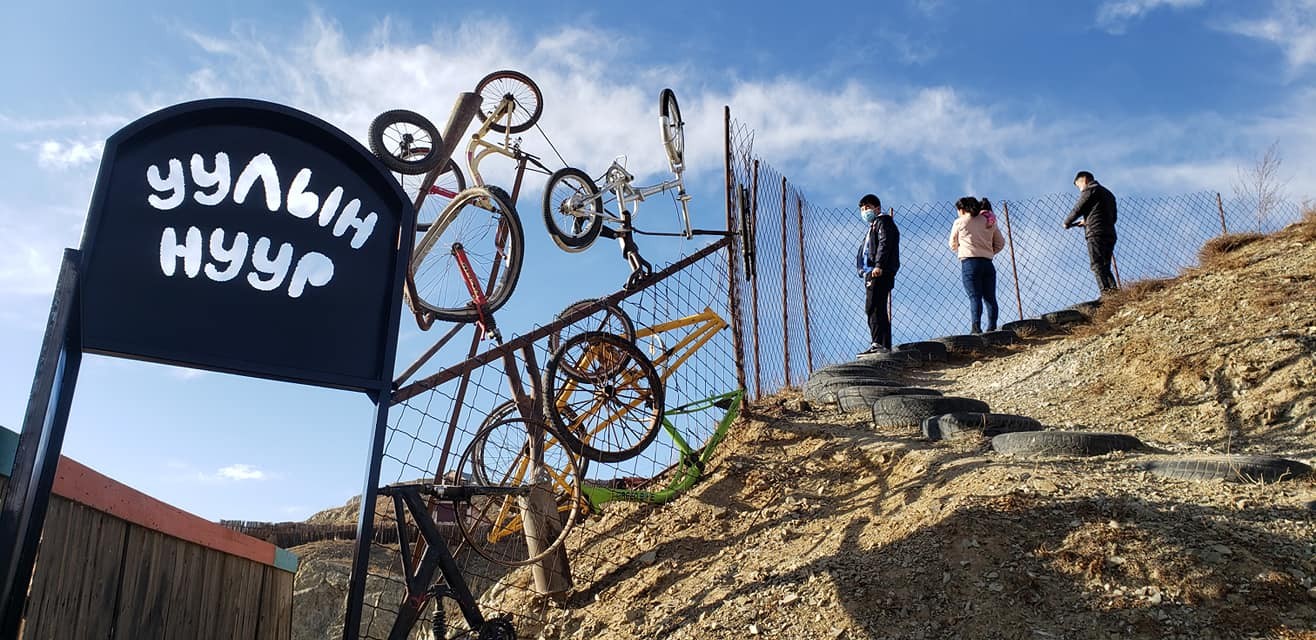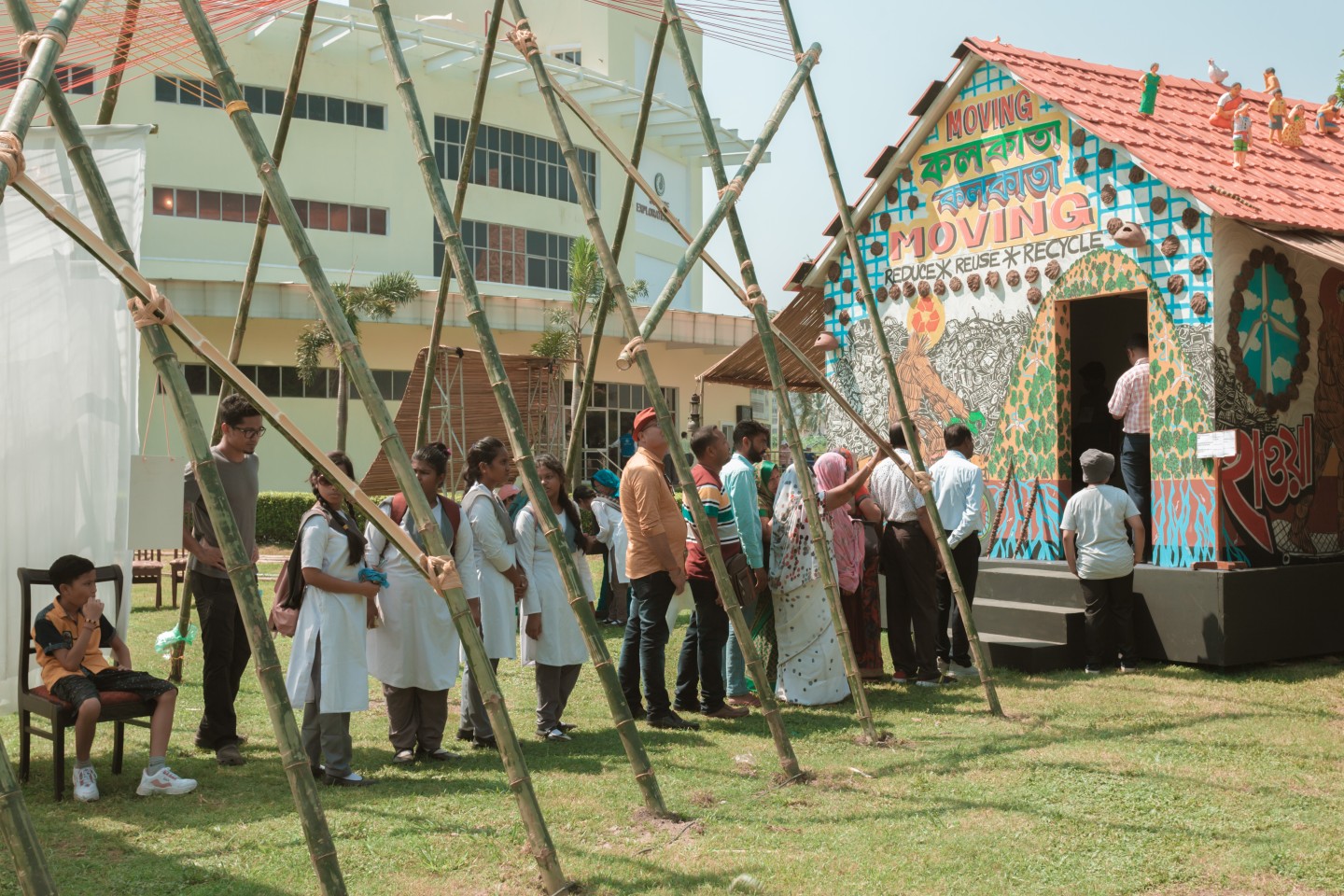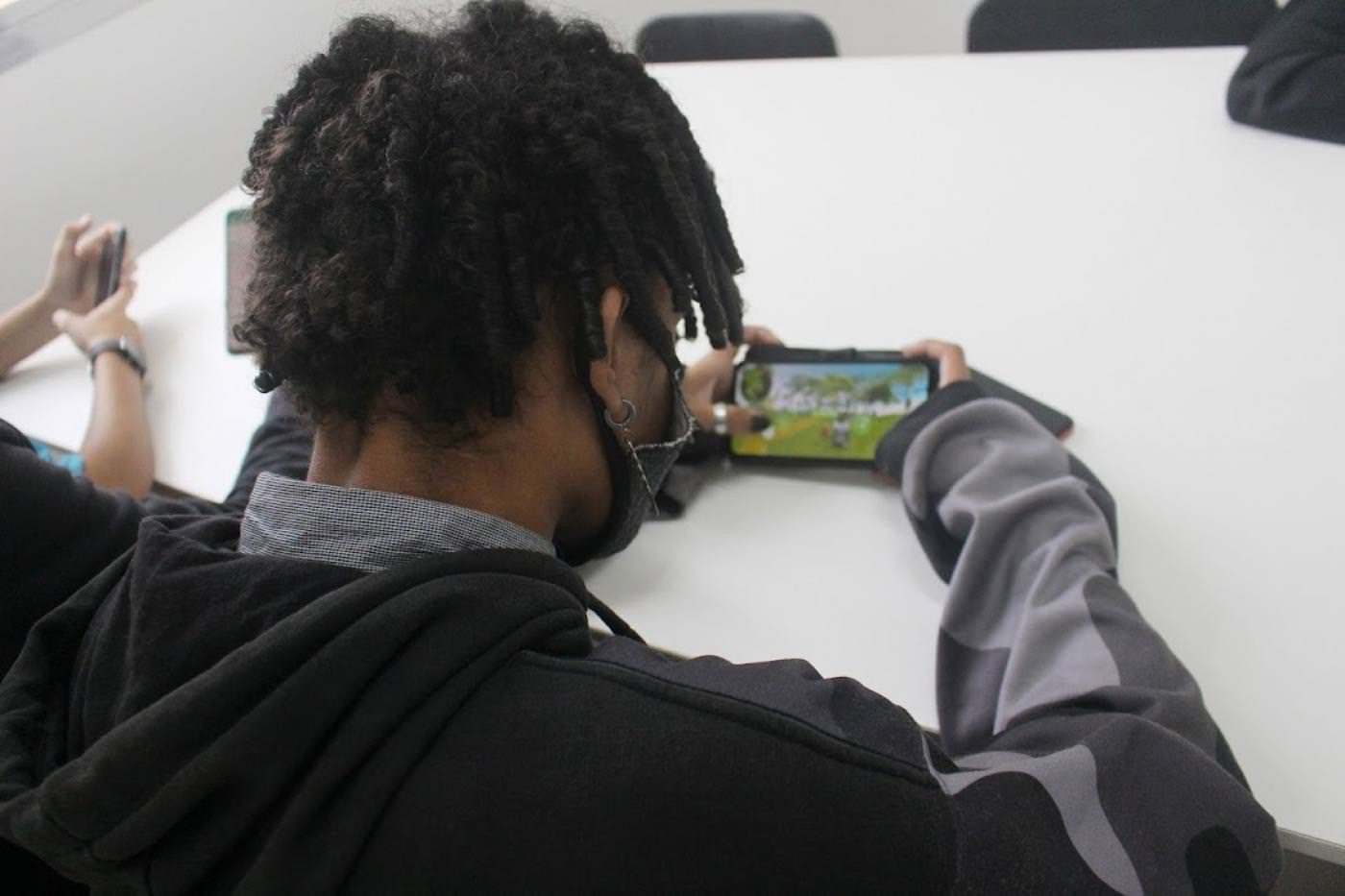



EUNIC engagement in cultural relations & climate action
What role can EUNIC play in enabling the global creative climate movement to thrive? How can the network take collective action and further mainstream climate action in the community of cultural relations practitioners? What are the key global advocacy moments where culture and cultural relations need to be more present in terms of the post 2030 Sustainable Development agenda?




EUNIC has been on a long journey to find answers to some of these questions and explore the role of culture in sustainable development and recently more specifically the climate crisis. A few important milestones include:
Commitment to the UN Sustainable Development Goals
EUNIC as the European network of organisations engaging in cultural relations can play an important role in driving the importance of culture in the United Nations Sustainable Development Goals (SDGs) agenda and in strengthening cultural cooperation as a dimension of sustainable development. The Knowledge Sharing Workshop on 'The Cultural Dimension of Sustainable Development' co-organised with British Council and ifa - Institut für Auslandsbeziehungen outlined a few opportunities to do so and showcased several examples from the network. Acknowledging its role and responsiblility, the EUNIC Strategic Framework 2020-2024 also includes a commitment to the implementation of the SDGs (Objective 1), guiding as underlying basis of any of the network's activities. Through an optional thematic focus on SDGs in the Cluster Fund 2021, the woldwide cluster network was invited to explore possibilities of putting the SDGs at the core of cultural projects. Finally, a dedicated Knowledge Sharing Workshop also explored ways of monitoring and evaluating the societal impact of cultural relations especially in light of the SDG framework.
Climate Culture(s) Creative Lab and projects addressing climate change
In continuation of this longer term committment to the wider SDG framework, the network formally adopted a stronger collective intention to tackling the climate crisis at the EUNIC General Assembly June 2022. As a direct result, EUNIC organized the Climate Cultures Creative Lab as an opportunity to strengthen the capacity of EUNIC staff members, make their voices heard more on the issues of culture, climate and environment, and support emerging leadership on the topic. The programme was organised in close collaboration with Goethe-Institut and Julie's Bicycle. During this lab, EUNIC colleagues learned and exchanged about the meaningful assets cultural relations can offer the network in taking collective climate action. Understanding the climate crisis also as a cultural crisis, participants agreed that culture plays a crucial role in finding holistic and system-wide solutions. This includes bridging the gaps within society, addressing inequalities that are caused and amplified by the climate crisis, and communicating a shared responsibility for action.
At the same time, a range of projects across the network have started addressing the climate crisis through different angles. To support this, the 2023 Cluster Fund proposed an optional thematic focus on climate action. Numerous projects funded by European Spaces of Culture have also shown the significance of cultural relations for informing dialogues around climate action and environmental protection.
Commission: Cultural relations & climate action
Building on conclusions from and ideas presented in Berlin, an open call was launched to commission a team of experts to continue research and develop tools for the network around the topic of cultural relations and climate action. Building on extensive desk research, a series of in-depth interviews and a vast online survey, the selected authors Eva Balaban and Maria Elena De Matteo are currently developing a range of deliverables to inform the network's next steps in the sphere of climate action and to support colleagues from across the network to adopt more sustainable practices.
Reply to the online survey until 12 April
In order to make these tools as useful and practical for colleagues as possible, we need the network’s direct input and insights! We invite all colleagues to take 15 minutes to reply to the survey latest by Friday, 12 April via this link:
https://eunicglobal.typeform.com/to/zc5VJWls.
Your replies will help us understand the current state of activities around the topic, challenges faced, areas where support is needed and possible solutions.
Contact
For any questions on EUNIC's committment to sustainability and climate action, you can contact Michelle at michelle.sun@eunicglobal.eu.
